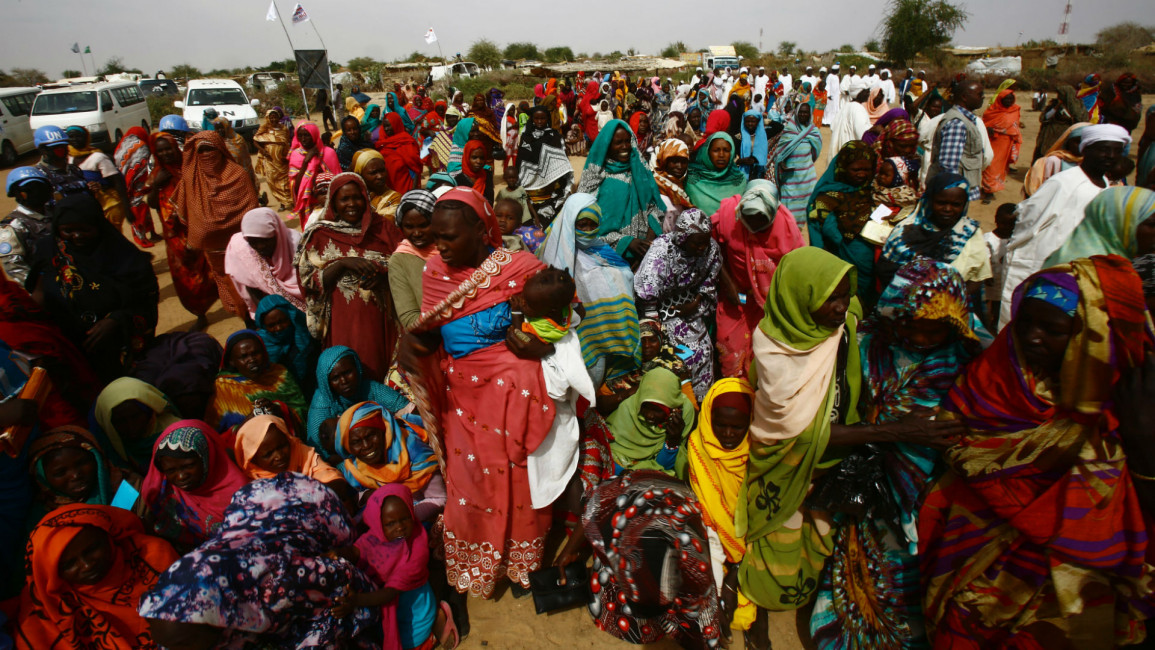Sudan: 'Serial WMD offender' appointed leader of chemical-weapons watchdog
Yet despite this allegation, the Sudanese representative at the Organization for Prohibition of Chemical Weapons [OPCW] - the watchdog responsible for monitoring chemical weapons abuses - has been appointed vice-chair of its Executive Council.
"Ambassador Rahma Salih Elobied of the Sudan was nominated by the group of OPCW Member States from Africa, and confirmed at the 84th EC session as one of four EC Vice-Chairs," the OPCW said in a statement.
Sudan is reported to have used chemical weapons more than thirty times against its own citizens in Darfur.
The OPCW responded to Amnesty's investigation saying it was "not possible at this stage to draw any conclusions based on the content of the report".No OPCW member made a summary request for a clarification from Sudan as a result of the report - the first step required to start an official international investigation.
A number of NGOs have reacted to the appointment with disbelief and frustration.
"It is a new low that a state which has been credibly accused of using chemical weapons in attacks against civilians has now been voted into a chair position in the body responsible for banning their use," said Maddy Crowther, a spokesperson for the human rights organisation Waging Peace.
"What is the point of having the use of chemical weapons be a 'red line' issue if there is no political will in the international community to properly investigate and verify allegations when they are made?"
Waging Peace has also called on individual member states to call for an investigation into Amnesty's findings - adding that only one member state's request was needed.
 |
Failure by member states to trigger the investigation would be a monumental and shameful abdication of duty. |  |
"These brutal attacks [in Darfur] left an estimated 200 to 250 people dead and scores more with horrific injuries," said Michelle Kagari, regional director at Amnesty.
"The OPCW must fully and independently investigate them.
"Failure by member states to trigger the investigation would be a monumental and shameful abdication of duty."
The use of chemical weapons is a war crime under a number of international treaties, including the Chemical Weapons Convention and the Statute of the International Criminal Court.
The president of Sudan, Omar al-Bashir, is currently wanted by the International Criminal Court for alleged war crimes in Darfur.The Sudanese embassy to the Netherlands - the OPCW is based in The Hague - did not respond to a request for comment by time of publication.
Obeid reportedly said Sudan would work with the member states of the council to "achieve the organisation's objectives" and help "strengthen international cooperation" to limit the spread and use of chemical weapons.
Amnesty International has on two occasions, without success, called for OPCW members to seek clarification from the Sudanese government on alleged chemical attacks in Jebel Marra, Darfur.
"In the absence of this clarification, member states should request an on-site challenge inspection in accordance with Article IX of the Chemical Weapons Convention," Amnesty said in a report.
The OPCW was awarded the 2013 Nobel Peace Prize because it had "defined the use of chemical weapons as a taboo under international law".
Translation: Rahma Obeid, new Ambassador for Sudan to the United Nations in Geneva presents her credentials to the Director-General.



![A Palestinian girl stands amid the rubble of her destroyed home on 24 May 2021 in Beit Hanoun, Gaza. [Getty]](/sites/default/files/styles/image_330x185/public/2021-06/GettyImages-1233090336.jpg?h=a4507e6b&itok=eFmdLkDh)